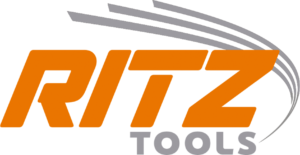In our increasingly electrified world, electrical safety is paramount. Whether at home, in the workplace, or in industrial settings, the use of electricity carries inherent risks. However, by understanding the critical role of proper equipment, we can mitigate these risks and ensure safety. In this blog post, we’ll delve into the significance of using the right electrical equipment to prevent accidents and protect lives.
The Basics of Electrical Safety
Before we dive into the importance of proper equipment, it’s crucial to grasp the fundamentals of electrical safety. Electricity can be dangerous due to its ability to cause fires, shocks, and even fatal injuries. Safety measures include avoiding overloading circuits, using Ground Fault Circuit Interrupters (GFCIs), and conducting regular inspections. But at the heart of these precautions lies the need for proper equipment.
The Connection Between Equipment and Safety
The connection between electrical safety and the equipment used is undeniable. Imagine a scenario where outdated or subpar equipment is in use. Such equipment might not be capable of withstanding the electrical load or may have deteriorated insulation, posing a severe risk. Quality equipment ensures that electrical circuits function as intended, minimizing the likelihood of accidents.
Importance of Equipment Inspection and Maintenance
Electrical equipment, like any other machinery, requires regular inspection and maintenance. Even the most durable equipment can degrade over time due to wear and tear, exposure to environmental factors, or manufacturing defects. By routinely checking and maintaining electrical gear, you can identify potential issues before they escalate into dangerous situations.
The Role of Proper Wiring and Outlets
Proper equipment extends beyond devices and appliances; it also includes the wiring and outlets that distribute electricity throughout a building. Using the right type and size of wiring, along with correctly installed outlets, is crucial. Inadequate or faulty wiring can lead to overheating, sparking, and electrical fires. Always consult with a qualified electrician for installation or repairs.
The Significance of Safety Switches
Safety switches, often known as circuit breakers or fuses, serve as vital guardians of electrical systems. They protect against overloads and short circuits, promptly interrupting the flow of electricity to prevent damage and potential dangers. Regularly test and maintain these switches to ensure they’re in working order.
Investing in Quality Equipment
When it comes to electrical safety, skimping on equipment quality is never a wise choice. Low-quality or counterfeit electrical devices may not meet safety standards, jeopardizing the well-being of individuals and property. Invest in reputable brands and products certified by relevant authorities to safeguard against hazards.
In summary, electrical safety is not a matter to be taken lightly. The proper equipment is the linchpin of an effective safety strategy. It forms the foundation upon which all electrical systems operate safely and efficiently. Regular inspections, maintenance, and adherence to safety standards are all integral to preserving the integrity of electrical equipment.
Remember, electrical accidents can have dire consequences, from property damage to loss of life. By recognizing the importance of using the right equipment and maintaining it diligently, we can significantly reduce the risks associated with electricity. Prioritize electrical safety, and always choose safety over shortcuts when it comes to your electrical equipment. Your well-being depends on it.
What are the essential electrical safety tools and equipment?
Essential electrical safety tools and equipment include insulated gloves, safety goggles, voltage detectors, circuit testers, and fire extinguishers. Additionally, using proper wiring, outlets, and safety switches is crucial for overall electrical safety.
What are some reputable brands for electrical equipment and tools?
Reputable brands for electrical equipment and tools include Schneider Electric, Siemens, Eaton, Fluke, Klein Tools, and Greenlee. These companies are known for producing high-quality and reliable electrical products that meet safety standards.
How often should electrical equipment be inspected and maintained?
Electrical equipment should be inspected and maintained regularly. Typically, it’s recommended to conduct visual inspections monthly and more thorough inspections by a qualified electrician annually. However, the frequency may vary based on the specific equipment and usage.
What is the importance of using Ground Fault Circuit Interrupters (GFCIs) in electrical safety?
GFCIs are essential for electrical safety as they quickly shut off power when they detect a ground fault or leakage of current. This helps prevent electrical shocks and reduces the risk of electrical fires, especially in wet or damp locations like bathrooms and kitchens.
How can I choose the right electrical wiring for my home or business?
Selecting the right electrical wiring involves considering factors such as the size of the load, the type of wiring (e.g., copper or aluminum), and the insulation material. Consulting with a qualified electrician is crucial to determine the appropriate wiring for your specific needs and to ensure compliance with local electrical codes.


